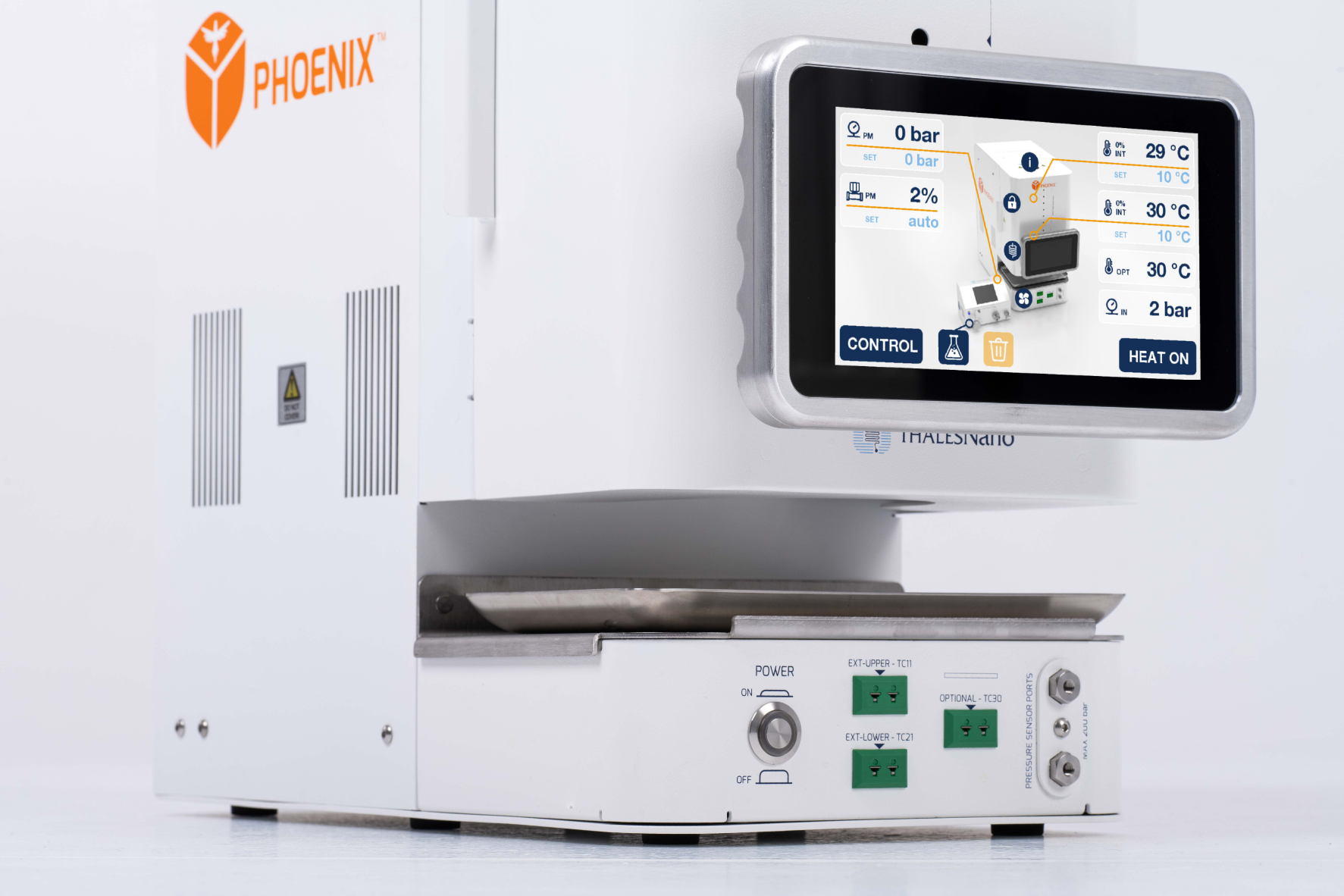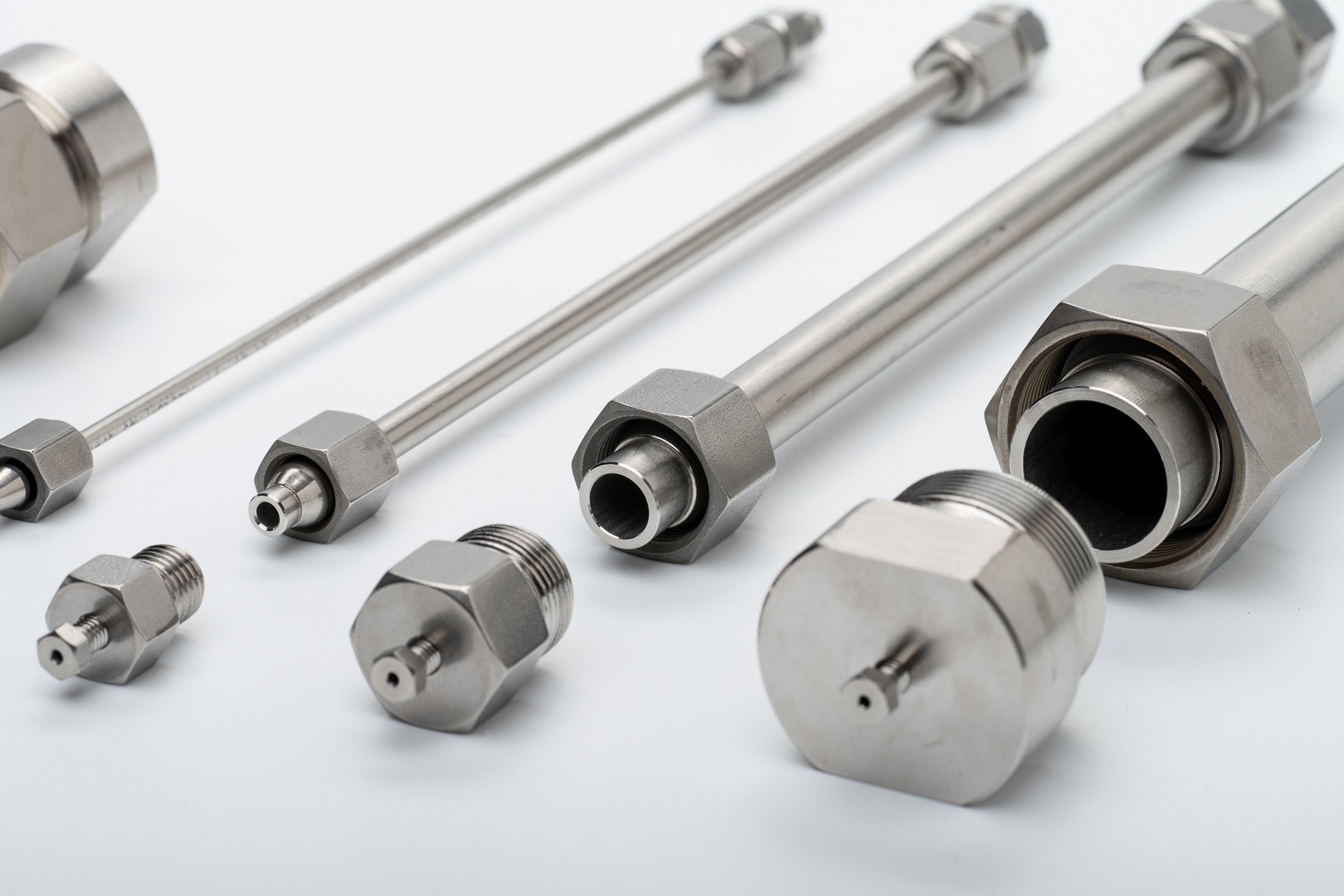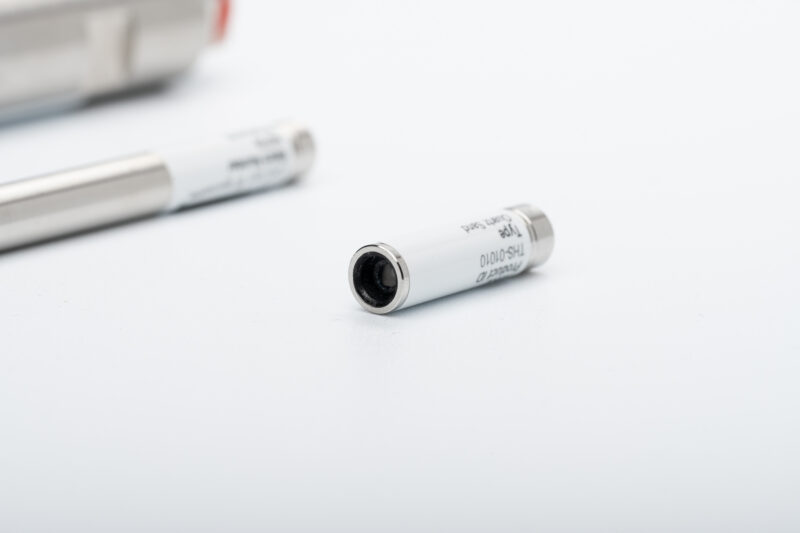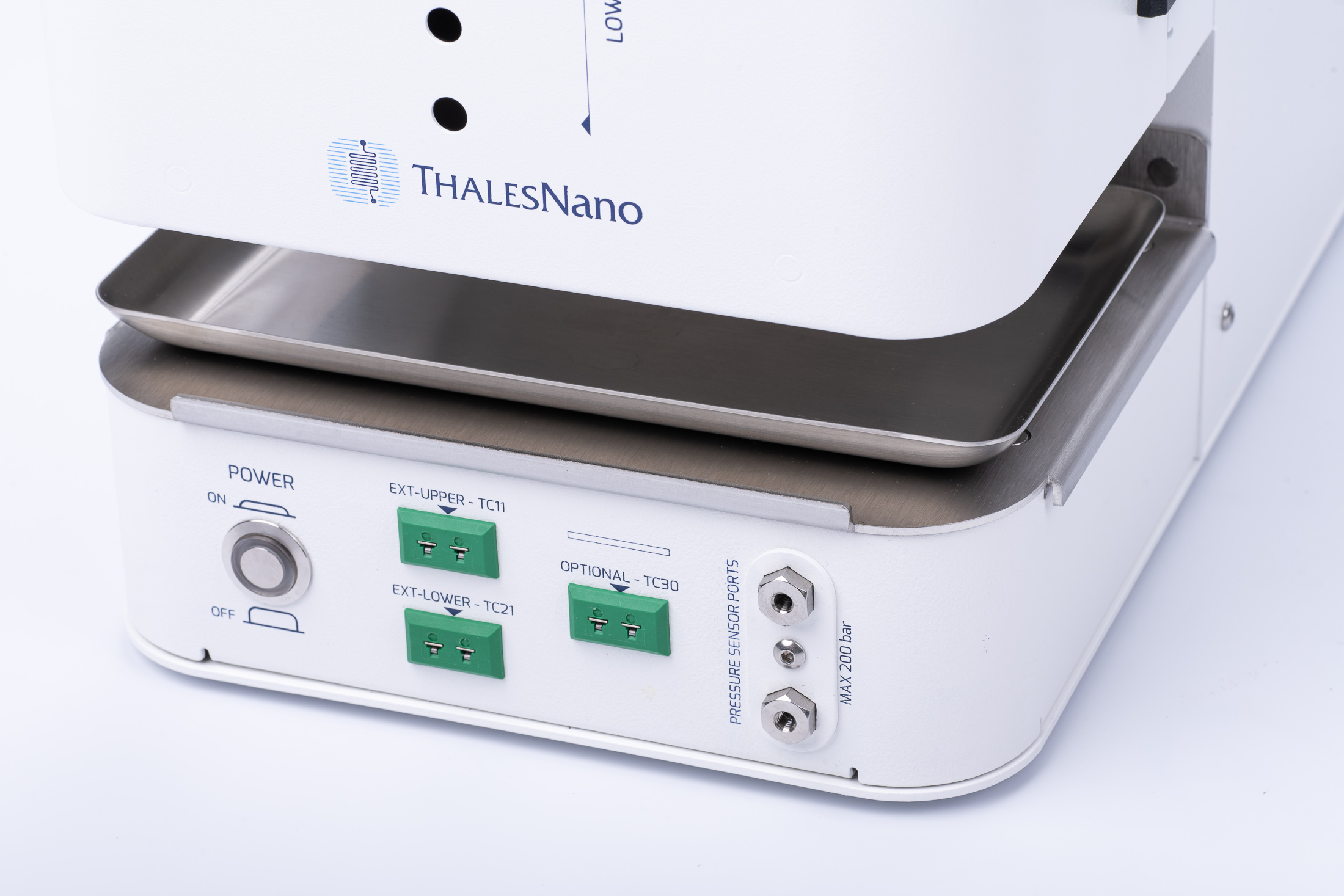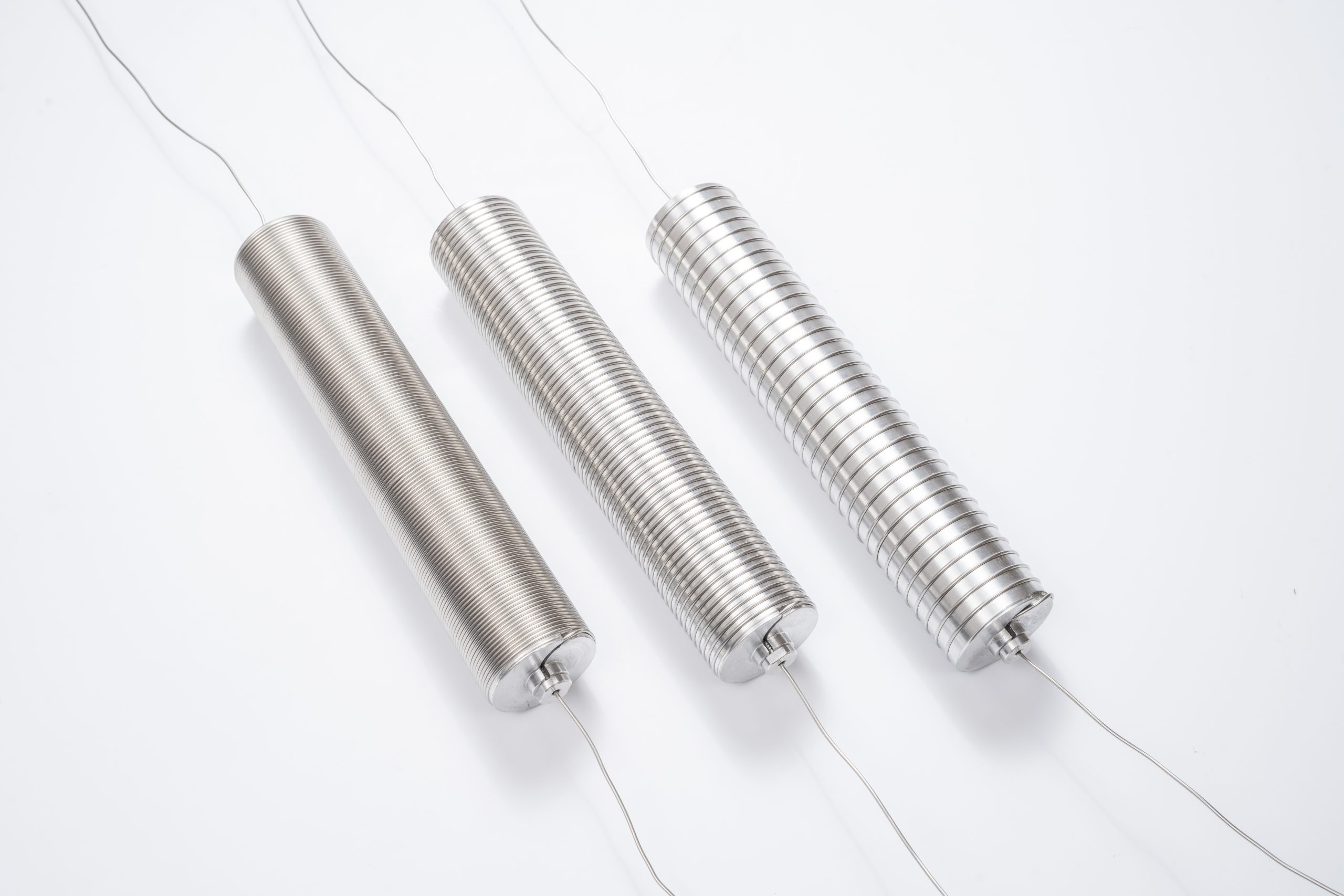High-temperature chemistry
Explore ThalesNano's solutions for high-temperature reactions
Performing High-Temperature Reactions
Precise temperature control is essential to reach the activation energy needed for successful reactions in chemistry. Traditional batch equipment often caps safely at 250–280 °C. This limit makes many high-temperature reactions inaccessible or slow, reducing conversions and yields.
At ThalesNano, we addressed this challenge by introducing the Phoenix Flow Reactor — a high-temperature flow reactor enabling precise temperature control up to 450 °C, well above the conventional limit.
By applying the Arrhenius principle—that reaction rates roughly double per 10 °C rise — the Phoenix Flow Reactor allows higher-temperature transformations with greater efficiency and control.
Synthesis of Heterocycles
Heterocycles are essential in nature and synthesis—nitrogen-, oxygen- and sulfur-containing heterocycles occur widely in living organisms and often have biological effects, aromas, or colors that attract pharmaceutical interest.
To produce novel heterocycles, there are two primary approaches. The first involves leveraging nature itself by extracting pre-existing heterocycles from plants and animals. The second method involves total synthesis, wherein these molecules are constructed from small organic or inorganic components. ThalesNano is dedicated to assisting chemists in pushing beyond the chemical space accessible through conventional batch methods, facilitating the synthesis of new compounds.
Since the early 1800s, many established routes to heterocycles require high temperatures, catalysts, and acid/base conditions. These batch reactions can be hazardous and scale only with vessel volume.
ThalesNano’s reactors enable continuous operation, precisely controlling pressure, temperature, and residence time in a safer environment.
Substitution Reactions
Substitution reactions have long been employed in organic chemistry as effective means for introducing or replacing functional groups in aromatic or aliphatic organic molecules. Depending on the behavior of the leaving group, these reactions can be carried out in either a catalytic or non-catalytic environment. Substitution reactions offer valuable pathways for creating new molecules and even entire libraries of diverse structures.
In continuous flow substitution reactions, production depends on catalyst durability or, without catalysts, just reaction time. This makes flow methods especially advantageous for industrial applications.
ThalesNano recognizes the potential of high-temperature substitution reactions and has developed dedicated continuous flow systems to address these challenges. Our advanced reactors provide precise temperature control, allowing chemists to explore a wide range of substitution reactions at elevated temperatures, thereby expanding the scope of accessible chemical space.
Browse our Application Notes
Explore our comprehensive range of application notes and discover how the Phoenix Flow Reactor revolutionizes high-temperature chemistry. Gain a deeper understanding of reaction mechanisms, safety considerations, and optimized reaction conditions that enable efficient and controlled high-temperature synthesis.
Flow reactors can be utilized to implement high temperature and high pressure chemical reactions. With this, chemists can move towards extending the accessible chemical parameter space to access new molecules and applications.
Ionic liquids have gained great interest during the last three decades due to their green and sustainable behavior along with their added versatility as solvents. N-Alkylimidazole derivatives are key intermediates for the synthesis of quaternary ionic liquid salts.
This application note evaluates the performance of the Phoenix flow reactor and the Gas Module in the production of value-added chemicals (other than methane) from a low-cost renewable carbon dioxide source.
Modern flow chemistry methods offer new chemical space for drug discovery programs: novel compounds can be synthesized in dedicated high temperature/high pressure (high T/p) reactors, while reaction times can be shortened dramatically.
In this application note, we demonstrate the flexibility of the Phoenix Flow Reactor by presenting various applications such as N-substitution, thermal Boc-removal, scalable Claisen-rearrangement, and synthesis of soluble polyphosphate anions.
Read Related Publications
Discover our scientific publication selection to learn more about high-temperature chemistry in continuous flow.
Do you have Questions?
Reach out to us at any time and experience fast and efficient support tailored to your specific needs.


